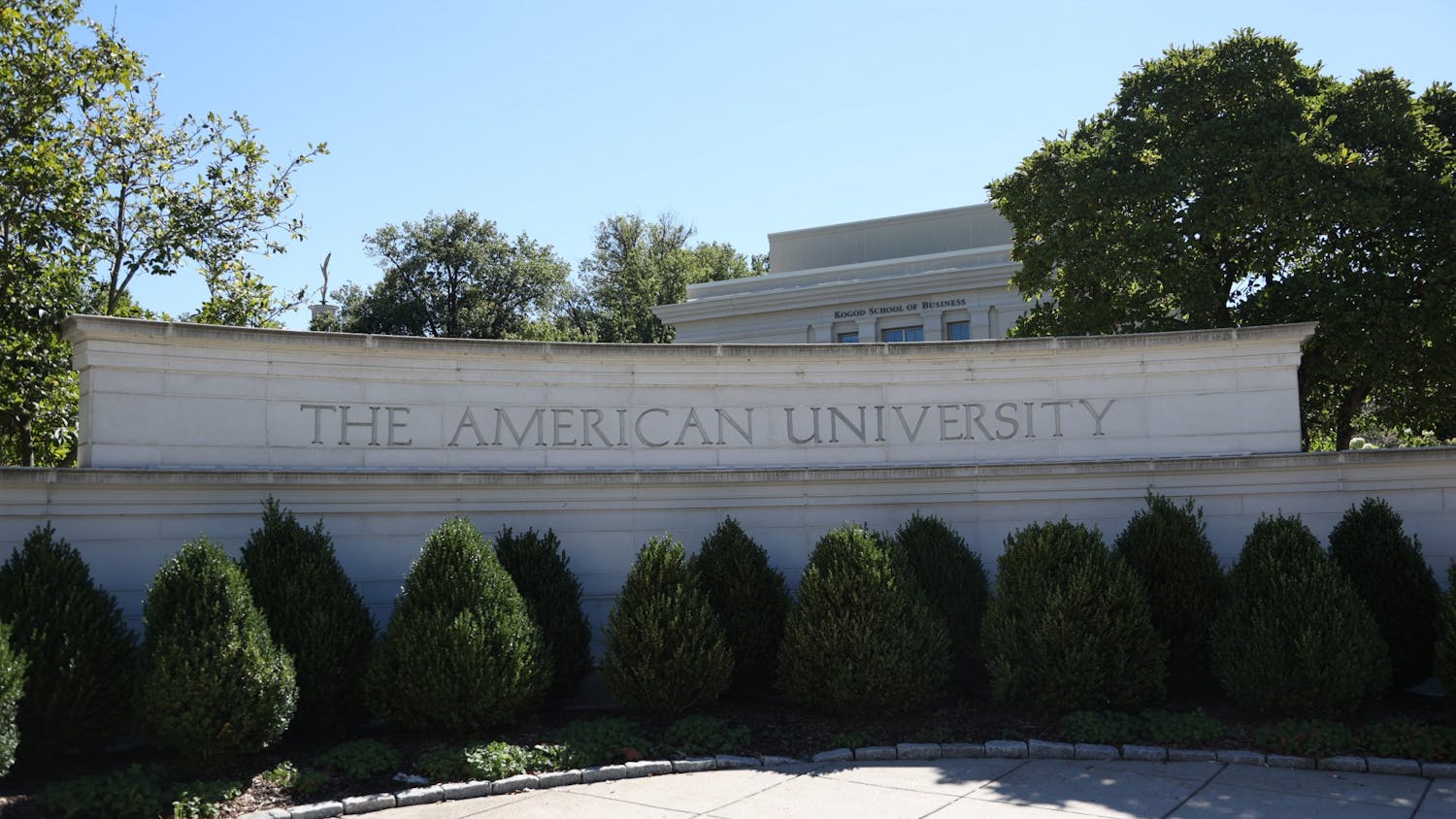In preparation for Pope Francis’ upcoming address to Congress, Fossil Free AU hosted a panel of professors Monday who spoke on climate justice in D.C.
Fossil Free organizers hoped to gather support for Thursday’s Moral Action on Climate Justice Rally, which will occur on the National Mall and coincide with the Pope’s speech.
The rally was created by the Moral Action on Climate Network, the Earth Day Network, the League of Conservation Voters and other environmental groups, the Washington Post reported.
Attendees will listen to Pope Francis’ speech, which will be broadcast live on the West Front of the Capitol. Climate justice advocates expect the pope, who has been an outspoken environmentalist, to devote part of the speech to climate change. Up to 200,000 people are expected to attend, according to the Washington Post.
At the Fossil Free panel on Monday, Eve Bratman and Malini Ranganathan, both assistant professors in the School of International Service, presented an in-progress research project entitled, “Tackling Climate Vulnerability: Lessons for Resilience in Climate Justice in D.C.” The project, sponsored by AU’s Metropolitan Policy Center, focuses on the relationship between climate change and economic and racial inequality. Paul Wapner, a professor in the School of International Service, and Tracy Watson, an master’s student in the School of International Service’s International Development Program, also spoke on the panel.
“The people who are most likely to bear the brunt of the negative effects of climate change are oftentimes the world’s poorest populations,” Bratman said at the event. “In a US context, there tends to be a lot of overlap between the poorest populations and racial minorities.”
The professors cited a host of environmental problems low-income communities of color face in D.C. Old storm sewers in under-resourced areas, Ranganathan said, make these areas more susceptible to flooding in the event of extreme weather events or rising sea levels. Poorly-constructed public housing developments and large amounts of concrete mean the same parts of the city will be disproportionately impacted by urban heat.
“Historically, the climate policy world has been dominated by certain groups of people, typically from elite organizations," Ranganathan said. "It’s very clear that minorities haven’t been included in the conversation."
Power outages, which increase with extreme weather, might also pose problems for people with health concerns that require appliances like dialysis machines, according to Ranganathan.
In a lengthy encyclical published last June, Pope Francis called for a partnership between scientific and religious leaders to address climate change, the Washington Post reported. The Moral Action on Climate website quotes a part of the document encouraging readers to “integrate questions of justice in debates on the environment, so as to hear both the cry of the earth and the cry of the poor.”
Audrey Irvine-Broque, an organizer with Fossil Free, said she believes Pope Francis’ address will help bring the human consequences of climate change into sharper focus.
“We’re moving from a lens on climate that says we can come up with the proper technologies, and we can innovate our way out of the crisis, to one that is focused on the moral decisions we have to make,” Irvine-Broque said. “A transition to a green economy is inevitable, but justice is not.”
Irvine-Broque said AU students can help build an equitable movement by assisting with racial and economic justice campaigns that, on the surface, might not seem related to the environment.
“We have to start talking about how having a living wage, and having access to benefits and healthcare, are actually related to vulnerability from climate,” she said.




